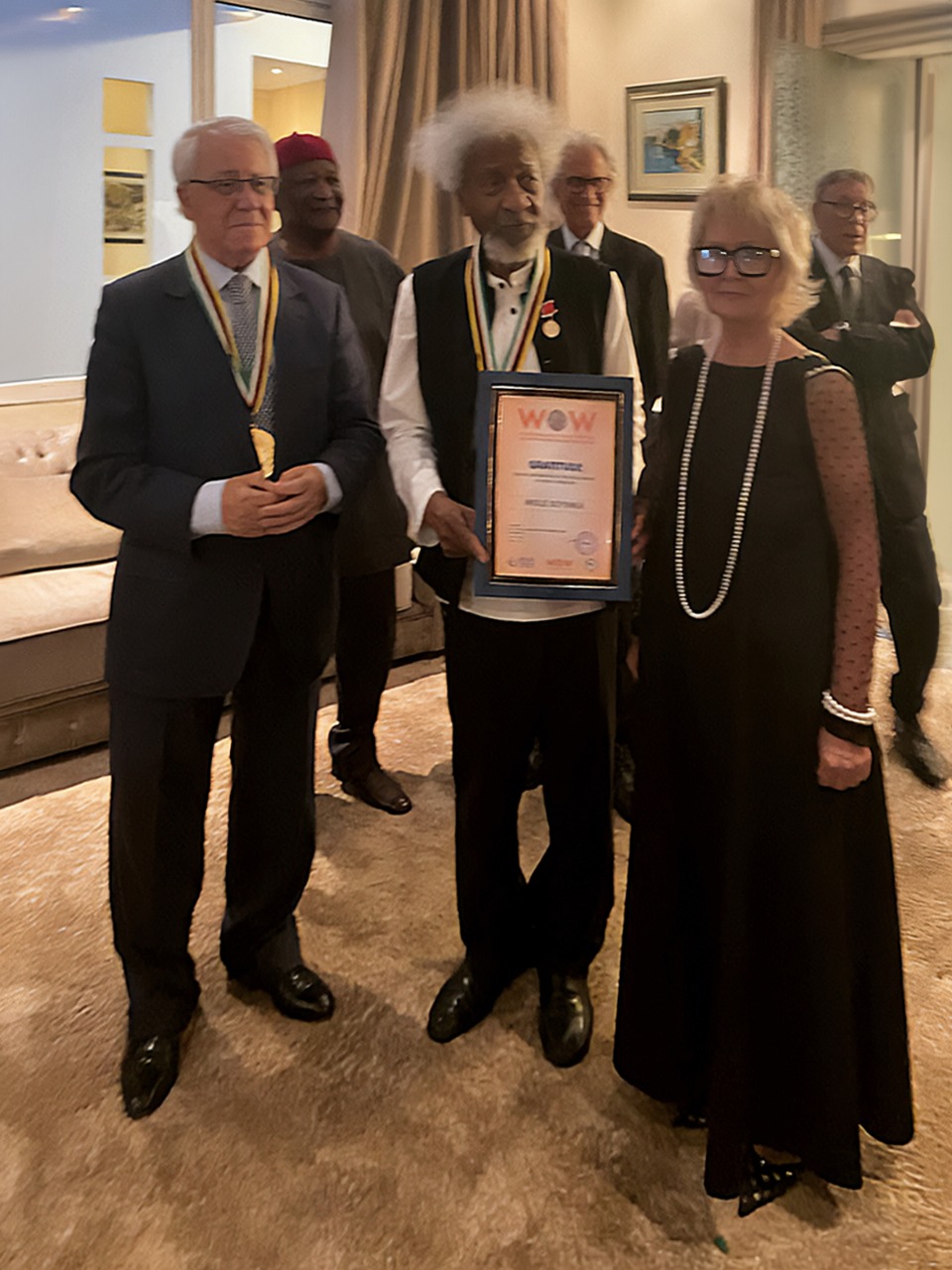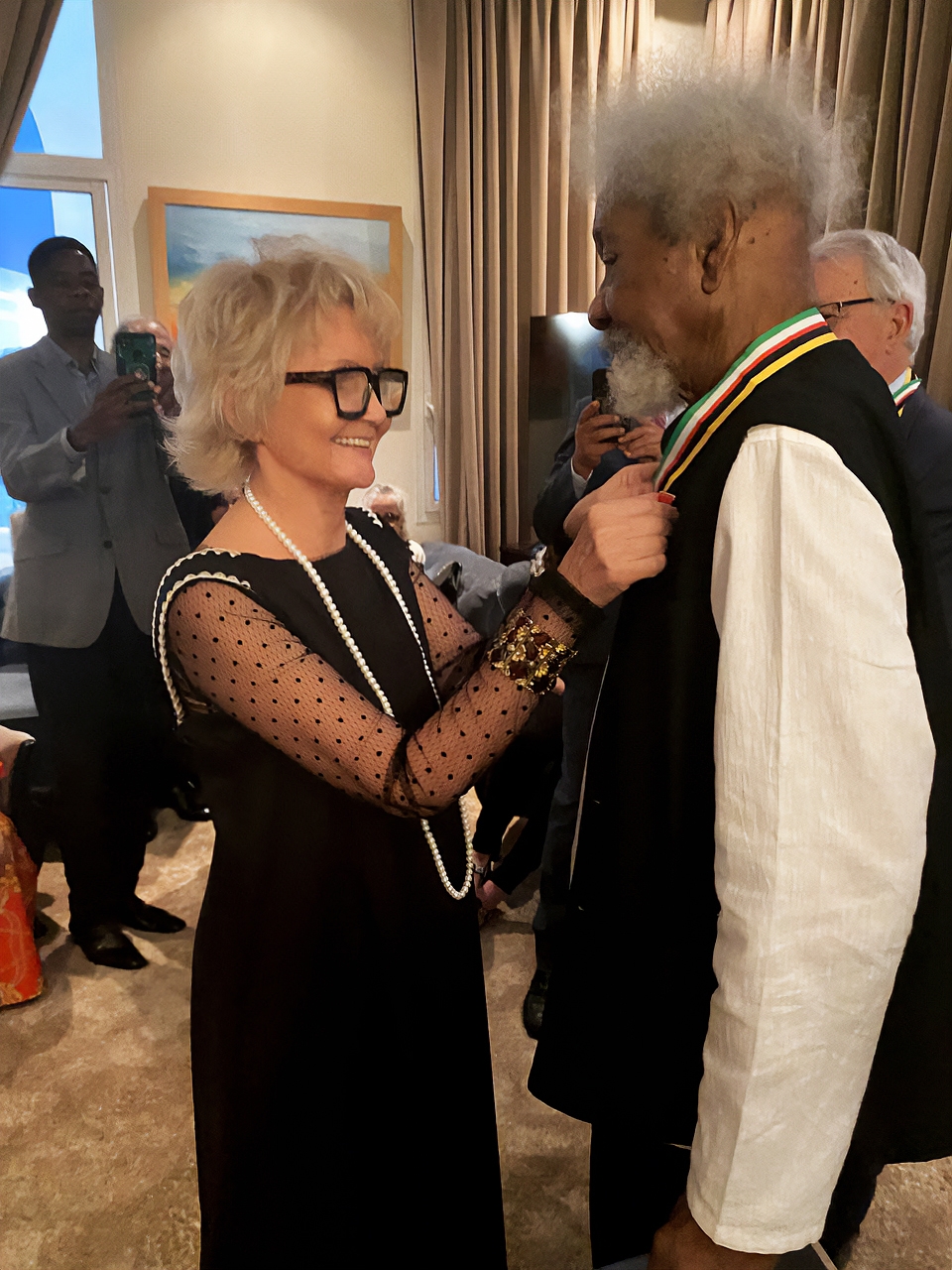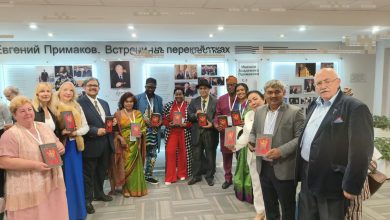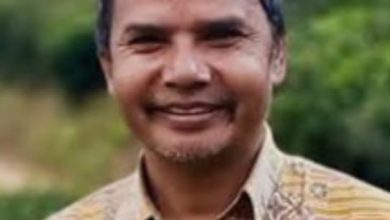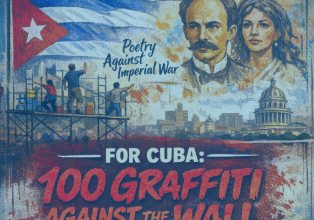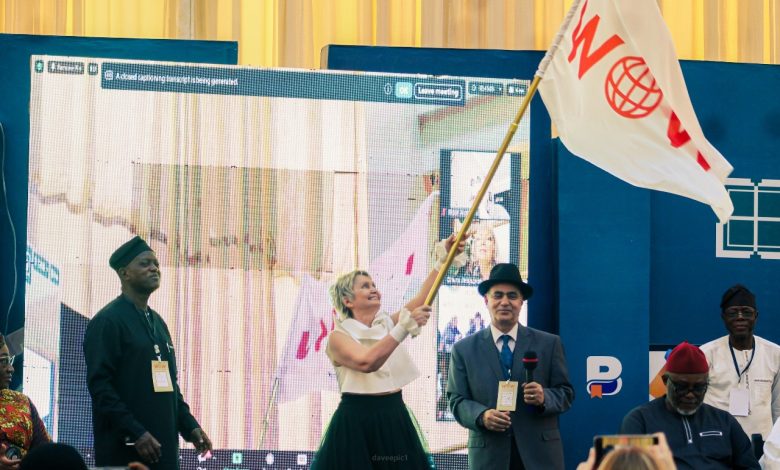
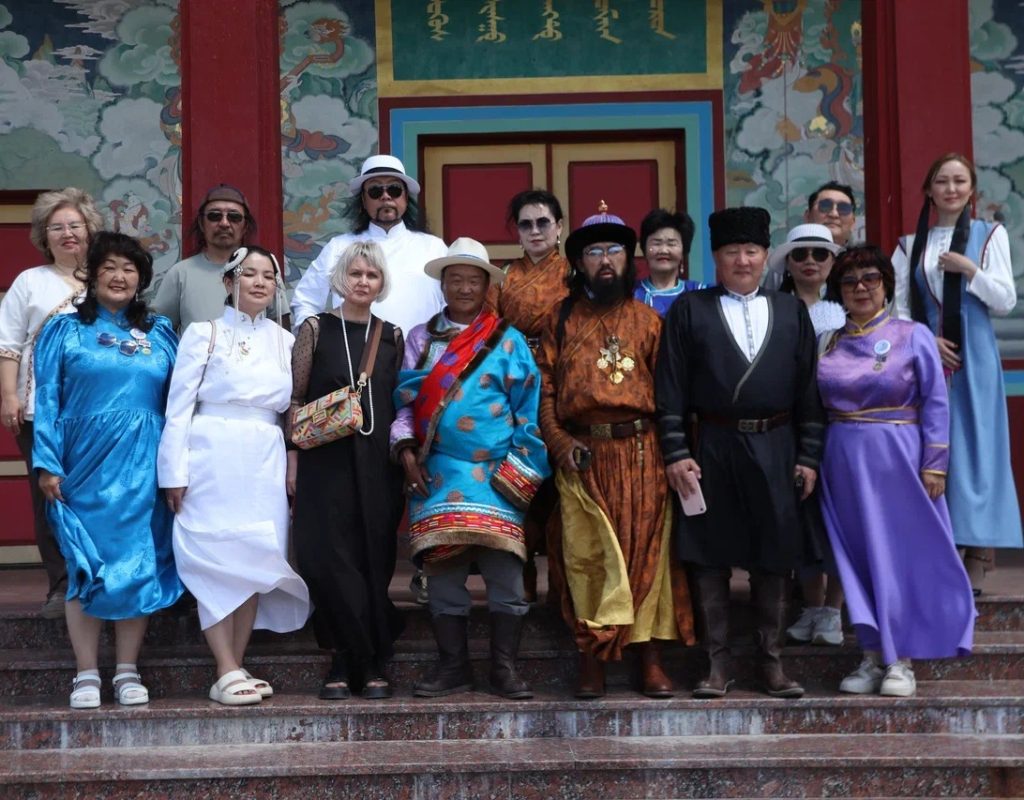 The World Organization of Writers (WOW) is a global platform dedicated to fostering literary cooperation across cultures, languages, and continents. The organization continues to expand its reach and horizons. After the successful hosting of its first Congress in Abuja, Nigeria, WOW is now preparing for its second Congress, which will take place in Moscow on September 20–21, under the umbrella of the World Public Assembly.
The World Organization of Writers (WOW) is a global platform dedicated to fostering literary cooperation across cultures, languages, and continents. The organization continues to expand its reach and horizons. After the successful hosting of its first Congress in Abuja, Nigeria, WOW is now preparing for its second Congress, which will take place in Moscow on September 20–21, under the umbrella of the World Public Assembly.
Under the inspiring motto “We Are the People of One Planet”, the upcoming Congress will bring together prominent figures of world literature to participate in seven parallel round tables. Each table will focus on key aspects of global literary culture — from translation and publishing to education and dramatic arts.
It is highly likely that, for the first time, all WOW Prize laureates will gather at the Congress. In what has now become a tradition, the WOW flag will be passed on — this year from Nigeria, represented by writer Wale Okediran, to Russia, represented by the poet and UNESCO Goodwill Ambassador Alexandra Ochirova. On the final day of the Congress, we will learn the names of the next WOW Prize laureates and the country that will host the third WOW Congress in 2026.
We sat down with Margarita Al, President of WOW and the visionary leading this ambitious initiative, to learn more about the Congress, its goals, and the broader mission of the organization in building a unified literary future.
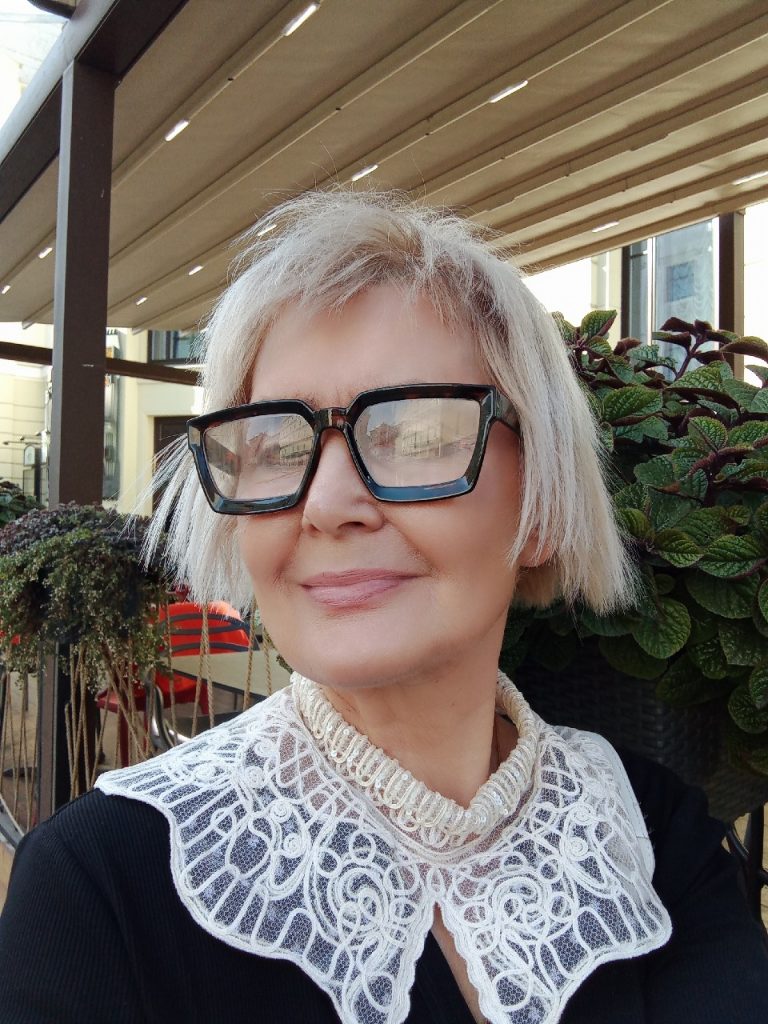
“A writer is someone who sees the soul within language.”
— Margarita Al
- For those who may not yet be familiar with the World Organization of Writers, could you briefly introduce WOW and its core principles?
Margarita Al:
The official details about the organization’s creation, its history, development prospects, global reach, structure, board, laureates, the Supreme Literary Council, and partners — all of this is comprehensively documented on our website: http://wow-lifft.com. Welcome to our online home of WOW.
But the true essence and living soul of WOW are — first and foremost — the writers themselves. These are the individuals who perceive the soul within language. WOW is a union of a certain caste of people. It does not matter what language they speak, write, or think in, or which country they live in, or what passport they carry — they are united by an invisible internal framework, a unique construct of biological and spiritual nature, in which creativity is not a function, but a mode of existence.
Their core skill, vocation, and source of fulfillment is the mastery of the word, through which the world gains new meaning and a moral-spiritual narrative. Remove this small group of people, and human civilization would become a mute, amoral society, bent on destroying itself and the planet.
We should not only list endangered languages in the Red Book of UNESCO, but also include the figure of the writer — an endangered species of homo sapiens capable of preserving the integrity of the world through the power of the word.
WOW is a space for the rehabilitation of the writer and the discovery of kindred spirits in terms of worldview and planetary thinking. And especially today, it is crucial that writers become aware of their mission — their responsibility in preserving cultural and ethical codes.
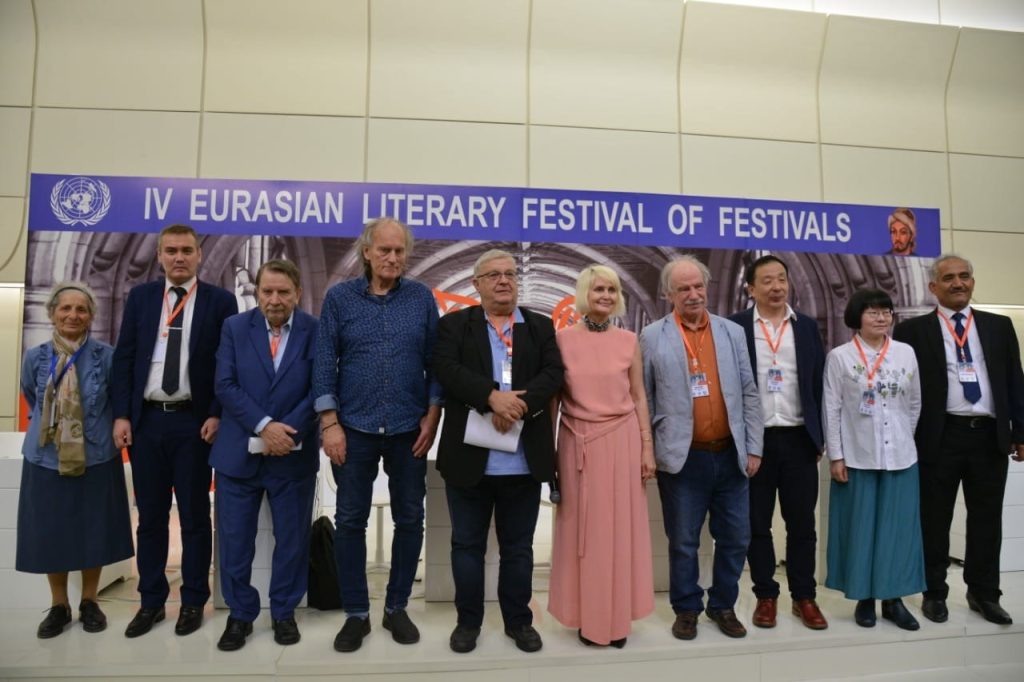
- What inspired the creation of WOW, and what role do you see it playing in the modern literary world?
Margarita Al:
WOW as an organization is the result of the intuitive development of a project to unify literary space. There were several stages along the way. That we are now a world organization was neither planned nor predicted. Everything evolved naturally — by choosing the path of least resistance, with the freedom to pause, to change course, to make a leap, to adopt unconventional decisions, to compromise, or to proclaim a manifesto of new creative ethics.
I believe this very freedom of choice and action, the novelty, the creativity, the geographic breadth of our interaction, and our multilingual audience — all these factors draw attention to WOW and continually increase the number of writers on our platform.
Today, the WOW Prize is one of the most prestigious. Works are accepted in six world languages. The Congress is held in the country of the WOW Prize Laureate. The next stage of development is regular representation of WOW at international book fairs.
- The first WOW Congress was held in Abuja, Nigeria. What key takeaways or successes would you highlight from this historic event? How did the experience in Abuja shape the preparation for the second Congress?
Margarita Al:
The first Congress in Abuja was truly historic. We brought together writers from 89 countries, established the WOW Board of Directors, ratified the core points of the memorandum—humanism, a new creative ethic—announced the first WOW Prize winners across four language groups, and built partnerships with African writers’ unions. This experience gave us confidence and clarity: the world needs platforms like this.
In Nigeria—a country with a different cultural tempo—we found an immense response and an organic understanding of the importance of the Word. What was born there were not only ideas, but also relationships—personal, professional, and profound. We heard how different the voices of world literature sound, and yet how much they have in common.
This experience showed us: the world is ready for a new literary architecture, where East and West are not antagonists, but different rhythms of the same heart.
In Moscow, we will apply all the best practices, strengthen the program, and expand the circle of participants.
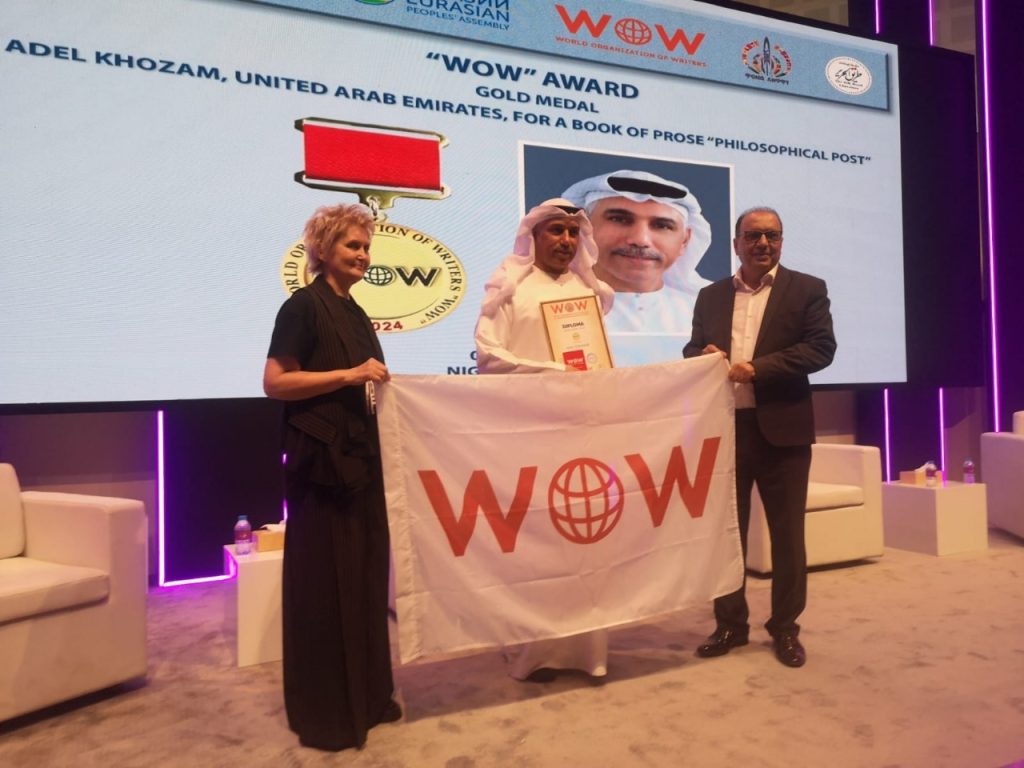
III. The second Congress will be held in Moscow under the motto “We are the people of one planet.” Why did you choose this timeless theme for your event, and what does it mean to you?
Margarita Al:
We truly are the people of one planet, yet for a long time we’ve been living as if at separate addresses—fragmented, weary, enclosed in our own algorithms and news bubbles. And suddenly we ask ourselves again: who are we to each other—neighbors, enemies, or co-creators of the world?
The Congress in Moscow is a conscious and well-planned act by writers: the creation of a laboratory of shared spiritual atmosphere, kinship, and brotherhood.
Regardless of language, religion, or culture, we live on one planet—and literature is one of the few realms where this unity is still possible. We speak to the world in the language of feeling, image, and meaning—and we call on everyone to see the human in each other.
Concrete proposals are already being received to expand our mission: to place the figure of the writer at the center of the humanist process as a subject of worldview architecture, to view the literary text as a form of spiritual navigation in a world where logic has been replaced by algorithm, to develop writers’ laboratories within WOW, where the future can be reflected upon before it turns into mere statistics and more proposals are on the table.
The Seven Round Tables
- Seven round tables are planned simultaneously. Could you explain how this format fosters engagement and dialogue?
Margarita Al:
Yes, this is our strategic format—our little literary Babylon. We are organizing seven simultaneous round tables, seven themes, seven directions that do not compete but resonate with each other. Each has a moderator and a strong group of speakers.
In the first part (90 minutes), participants discuss their topic in a professional circle. In the second part (another 90 minutes), each table delegates a representative to present the conclusions and answer questions. This creates a lively, horizontal dialogue and enables practical decisions.
This is not a “sit-and-dispersal” format. It’s “we met—and launched a movement.” Dialogue as a form of thought. We expect writers from over 100 countries to participate.
- The topics range from translation to dramaturgy and education. How were these themes chosen, and why are they especially relevant today?
Margarita Al:
We didn’t choose “what’s trendy,” we chose what hurts.
Translation—because without it, we remain culturally isolated.
Young writers—because without them, the word has no future.
Universities—because meaning needs an environment.
Media and literary journals—because the writer’s voice must be heard.
Festivals and publishers—because the book must reach the reader.
Dramaturgy and cinema—because the word must move.
Writers’ unions—because even a genius cannot survive alone.
These are the spheres where literature lives, evolves, and engages with society. We want each participant to find their place and an opportunity for collaboration.
The Seven Round Tables
🔹 ROUND TABLE #1
Writers’ Unions: From Solidarity to the Architecture of a New Humanism
Topic: The role of writers’ communities in shaping cultural and humanistic agendas
Questions for discussion:
- What role do writers’ unions play in the era of digital fragmentation?
- How can we ensure ethical continuity between generations?
- What is the difference between institutional representation and a living literary environment?
Objectives:
- Define strategies to modernize writers’ unions
- Discuss models of support and dialogue between unions of different countries
- Form principles of “writers’ diplomacy”—cultural exchange without intermediaries
Outcomes:
- Creation of an international platform for union interaction
- Launch of a permanent Ethics Council for literary organizations under WOW
🔹 ROUND TABLE #2
The Art of Translation: The Word as a Meeting Point of Cultures
Topic: Translation as a humanist practice for preserving and disseminating meaning
Questions for discussion:
- What is lost in translation—and what is gained?
- How can ethical and cultural context be ensured in translation?
- Who today is responsible for the quality and accuracy of meaning transfer?
Objectives:
- Develop principles of humanist translation
- Include translators in the literary process as equal cultural authors
Outcomes:
- Establishment of an International Translation Council under WOW
- Launch of a program to support translations of works by WOW laureates and participants
🔹 Round Table #3
Media and Literary Journals: From Information Noise to Meaningful Guidance
Topic: The role of media platforms in promoting humanist literature
Discussion Questions:
- How can media and journals become allies of writers in combating the devaluation of language?
- How can trust in the printed word be restored?
- What should a modern literary journal be like as a bearer of humanism?
Objectives: - Restore the role of literary criticism
- Unite international publications around a shared value framework
Outcomes: - Establish an international pool of WOW literary journals
- Launch a unified online observer for humanist literature
🔹 Round Table #4
Education and Universities: Literature as a Vector of Human Development
Topic: Humanizing education through literature: methodology, practice, values
Discussion Questions:
- How can literature regain its status as a core subject in the humanities?
- Which works are essential to shaping moral foundations of personality?
- What should the model of “ethical education” be?
Objectives: - Develop courses and programs based on the works of WOW writers
- Strengthen ties between writers and the academic world
Outcomes: - Establish the WOW Partner Universities Association
- Launch an International School of Literary Curation
🔹 Round Table #5
Young Writers: Literary Tomorrow as a Collective Project
Topic: Supporting the new generation of authors as a humanistic investment in the future
Discussion Questions:
- What fears and challenges prevent young authors from speaking freely and boldly?
- How can we prevent cultural marginalization of young writers?
- How to balance freedom of expression with responsibility for the word?
Objectives: - Launch mentorship programs
- Offer models for youth participation in WOW’s international programs
Outcomes: - Establish a Global Council of Young Writers
- Develop a platform for debuts and online publishing for an international audience
🔹 Round Table #6
Book Fairs, Festivals, Publishers: Culture as a Space of Interaction
Topic: Expanding readership and cultural exchange through literary events
Discussion Questions:
- Why is the book still an “event”—and how can we make it meaningful?
- How can publishers become curators of the humanist agenda?
- What should an “ethical festival” look like?
Objectives: - Create an alliance of WOW book festivals
- Network publishers and curators into a collaborative structure
Outcomes: - A program to promote WOW books at international fairs
- Establishment of the WOW Literary Map – a calendar of events and points of interaction
🔹 Round Table #7
Drama and Cinema: Literature in Motion
Topic: Script thinking and humanism: how words become action
Discussion Questions:
- How can cinema and theatre convey new values?
- What makes a screenplay humanistic?
- What should 21st-century heroes look like?
Objectives: - Involve writers in screenwriting labs
- Create links between text, action, and audience transformation
Outcomes: - Establishment of the WOW Drama Lab
- A screenplay competition based on the works of WOW members
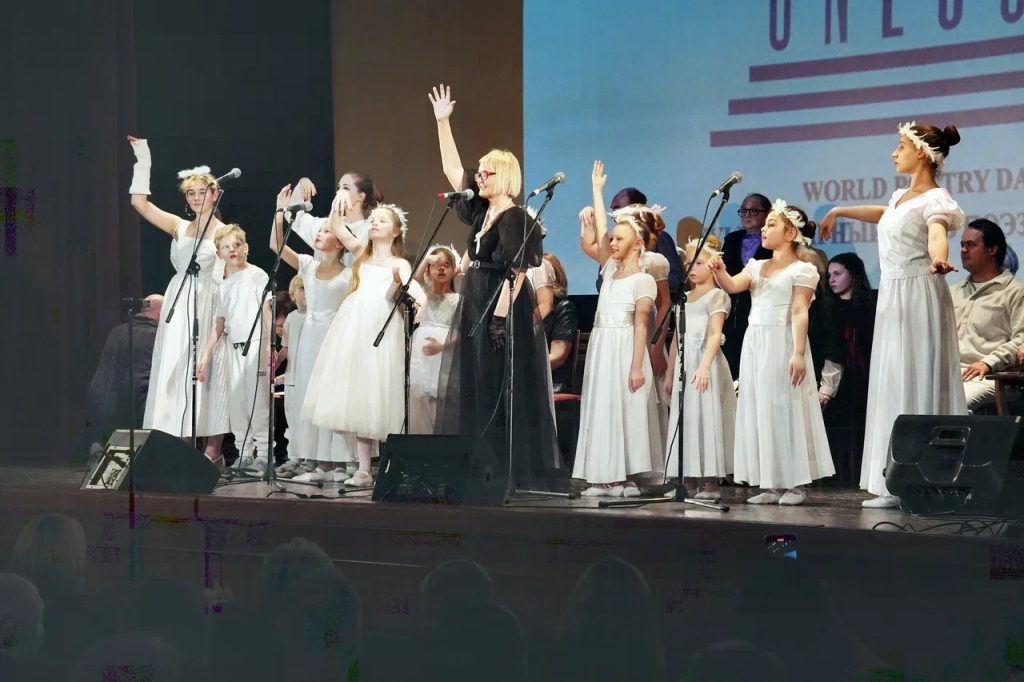
Margarita Al concluded:
“The next Congress is planned to be held in Brazil. We are in negotiations with China. We are planning to host the 28th UNESCO World Poetry Day in South Africa. We are expanding the WOW Prize, continuing our translation programs, and launching the International School of Literary Curation. It will be a packed year — but we are not rushing for the sake of reports. We move forward for the sake of meaning.”
Personal Vision
- As President of the World Organization of Writers (WOW), what has been the most valuable aspect of leading this institution for you?
Margarita Al:
The most valuable thing is trust — the trust of writers, editors, and translators from all continents. We speak different languages, but we are united by inner honesty and a belief in the power of the word.
To me, WOW is a mission. I feel like part of a vast literary organism in which every voice matters.
In WOW, there are no “main” and “secondary” members. Everyone who joins is a letter from the world. I’m learning to be a postwoman who never loses the letters.
- Finally, what message would you like to share with writers and cultural organizations around the world ahead of their participation in the Congress in Moscow?
Margarita Al:
In a time of total acceleration, where language is devalued faster than cryptocurrency, the writer remains the final guardian of depth. Not just a moderator of meaning — but its originator, its high priest, its messenger.
Literature is the art of responsibility for the world.
Let our meeting in Moscow be a new step toward a culture of dialogue, respect, and unity. We are people of one planet — and only together can we preserve its meaning.

